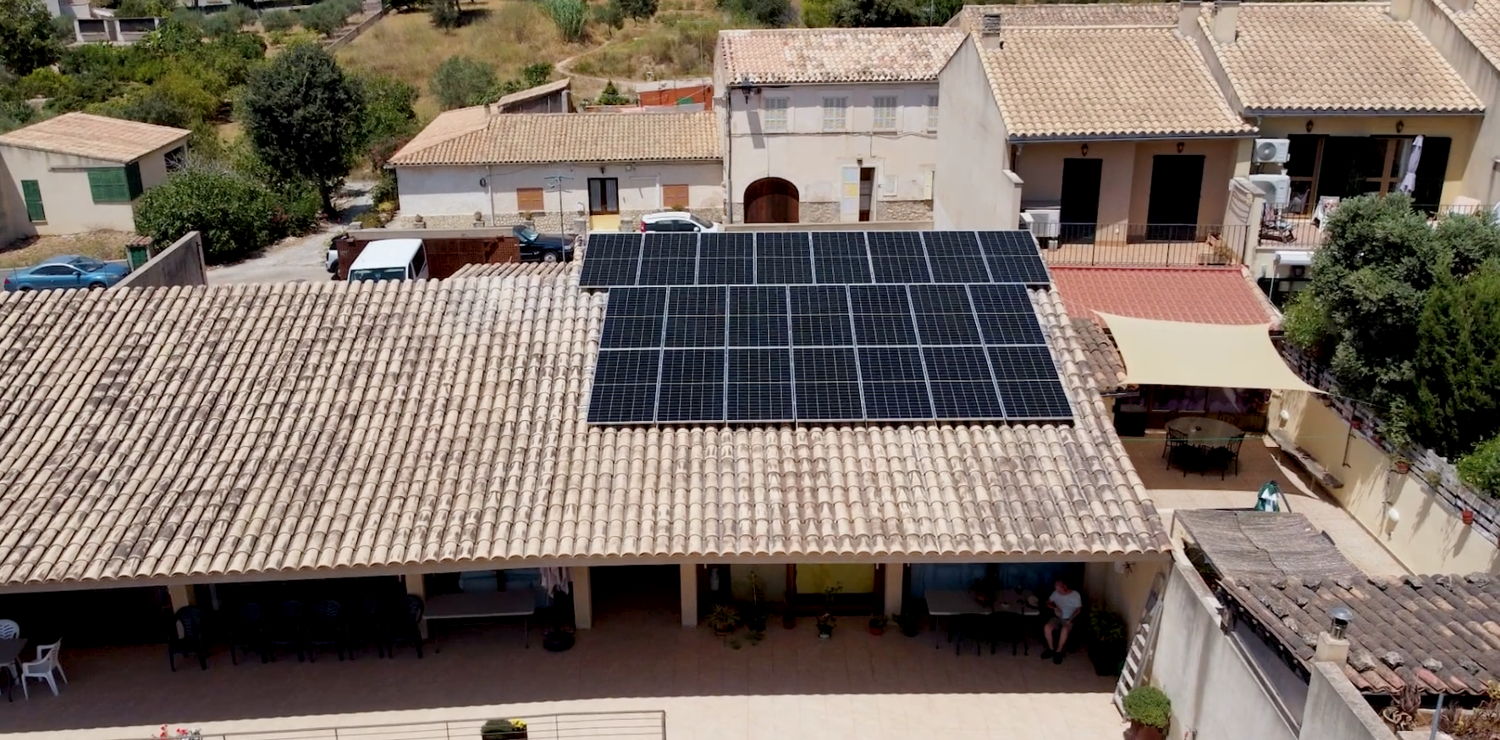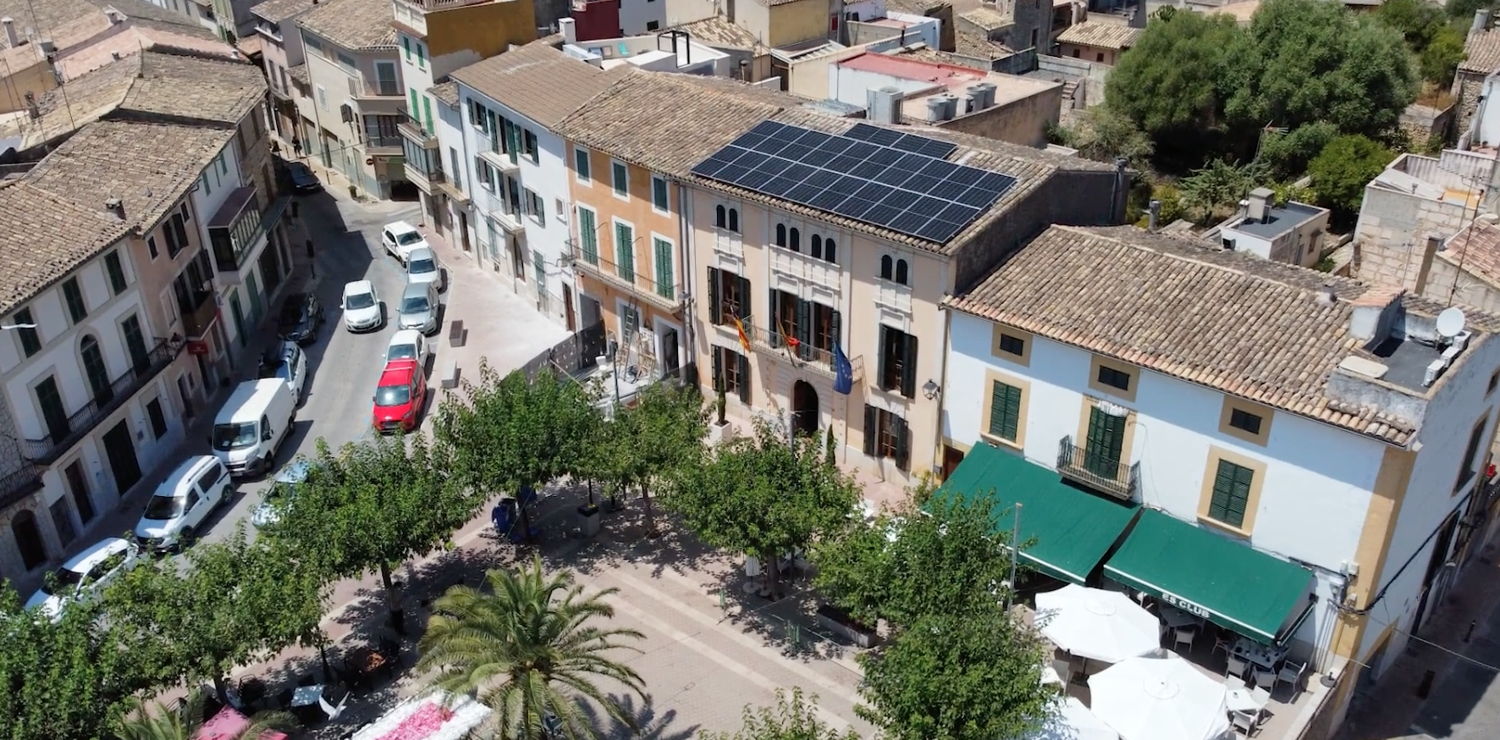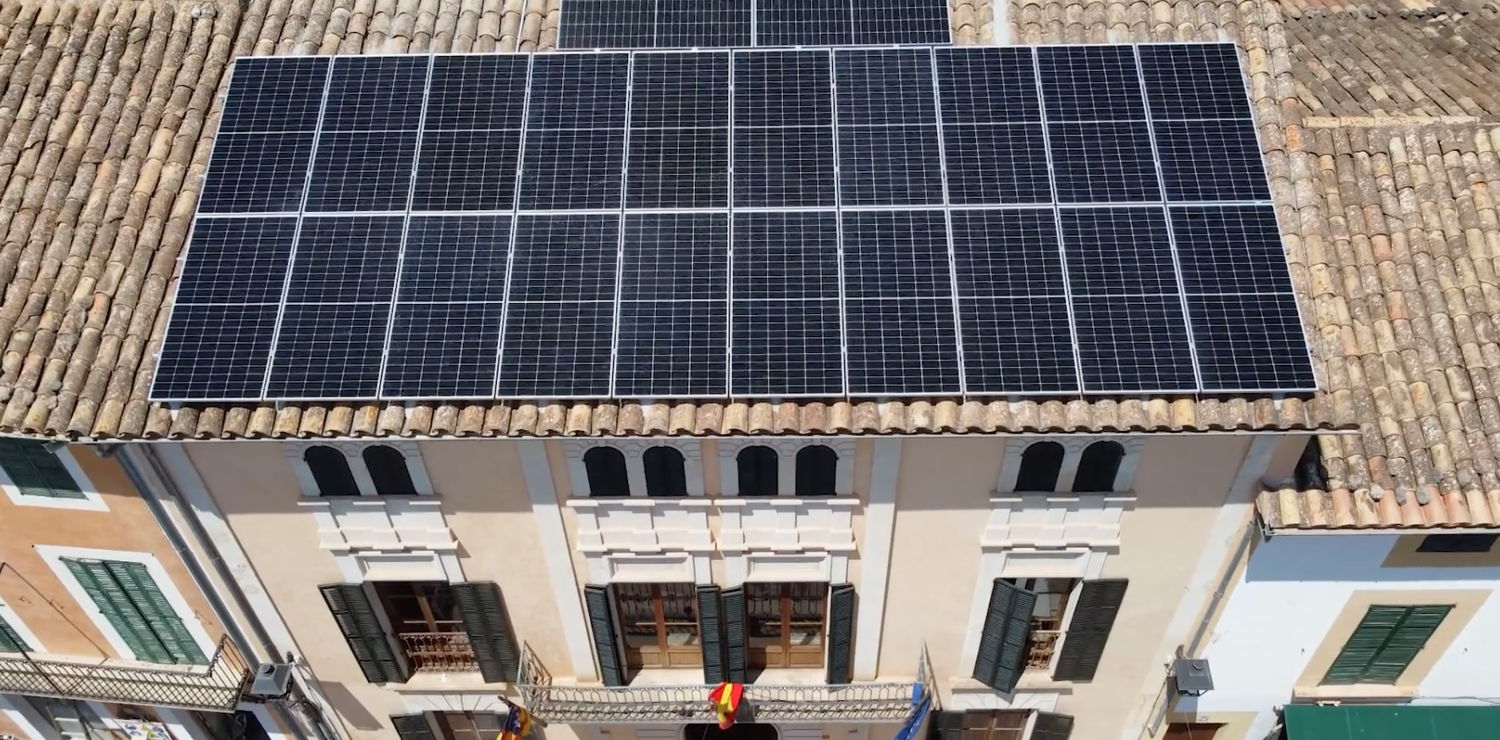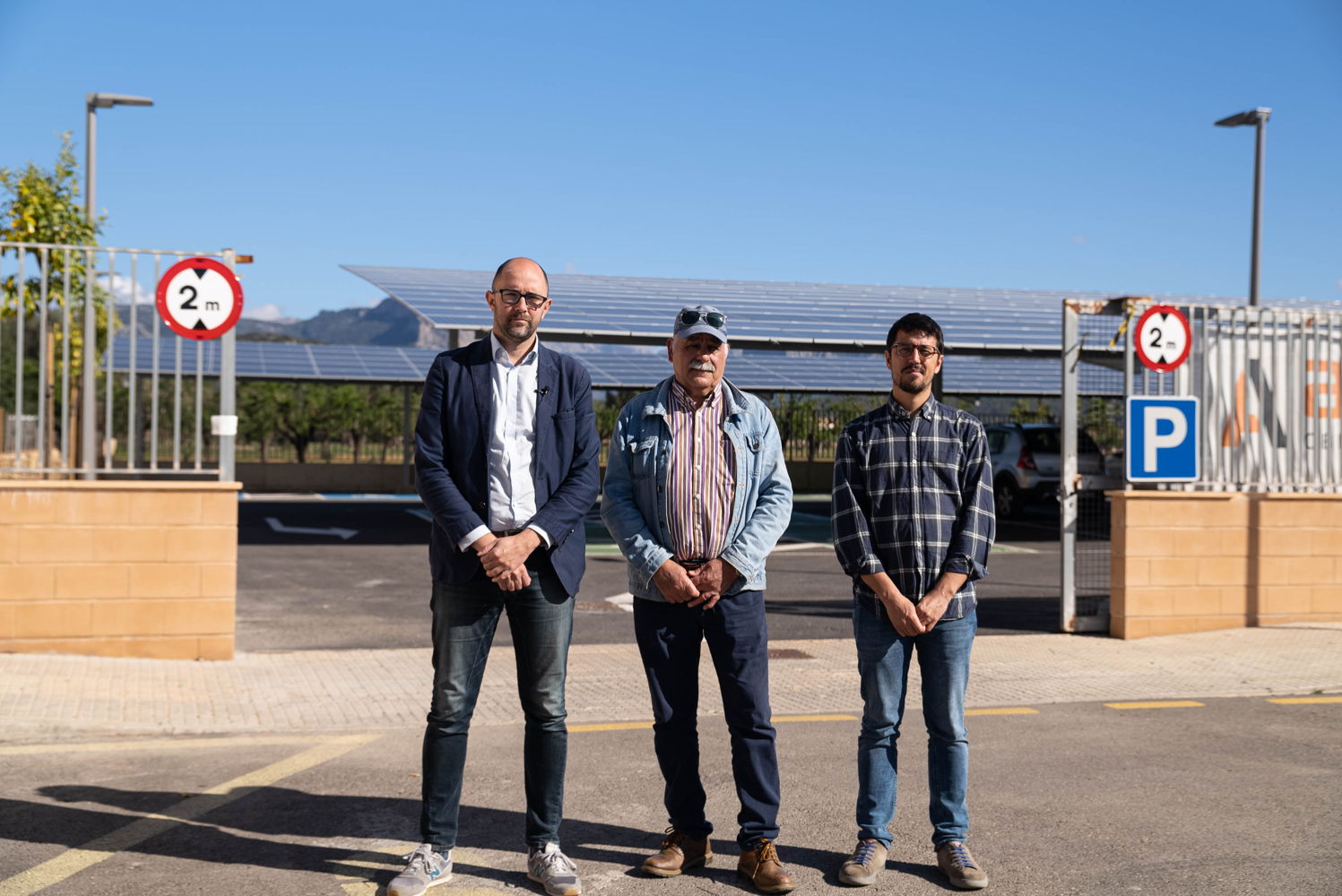Collective on Balearic Islands tackling energy poverty announced as a finalist in the 2023 European Sustainable Energy Awards
Through the installation of photovoltaic (PV) systems on publicly-owned infrastructure, the Balearic Islands' self-consumption collective is setting an example for municipal energy projects to meet clean energy goals and benefit citizens with lower bills.

Over 1 500 households across the Balearic Islands, Spain, many of which are struggling with energy bills, will gain access to clean and affordable energy this year thanks to a network of self-consumption renewable energy projects. Self-consumption at the community level produces enough renewable energy for daily household electrical needs such as laundry and cooking.
The Balearic Energy Institute, a public energy company established in 2019 by the Balearic Islands Government, is striking deals with Spanish municipalities to use public infrastructure such as parking lots and rooftops, to install PV panels and generate and sell this clean electricity below market rates to the local community.
‘Families are saving up to EUR 200 annually on their electricity bills and getting out of electricity poverty through these self-consumption projects. Around 100 households have already benefitted from reduced bills while saving CO2 emissions through these projects,’ says Pep Malagrava Rigo , Director General of Energy and Climate Change . ‘We are bringing green, local, and cheap energy to every municipality in the archipelago. With a network of self-consumption projects, we are addressing the need to deploy renewable energy while making it affordable to those most in need.’
Engagement is key to the success of this community energy model, both to get buy-in from municipalities to lend spaces for the PV installations and to gain interest among community members.
‘With every new project we organise talks in the neighbourhood. We see interest from people to receive energy from these PV panels, not only to reduce their energy bills but also to take part in a community project. It is important because when people see the solar panels in their community, they also see that they are part of the energy transition,’ according to Pep.
When new projects are going through permitting, residents can apply to be beneficiaries and at least 70% of those accepted are from vulnerable or energy poor households within a 2km radius of the PV site.
Mayor of Campanet, Mallorca, Rosa Maria Bestard Pons, celebrates this accomplishment: ‘Thanks to this initiative many families have benefitted, who otherwise would not have been able to access renewable energy.’
Some private projects have also started to replicate the model across Spain. ‘It is great to see our model being used. This is precisely our mission – to foster the energy transition and to change not only the energy mix, but also the attitude toward energy,’ explains Ferran Rosa Gaspar, Managing Director of the Balearic Energy Institute.
The project, which is partially funded by NextGenerationEU, is an example of how public resources can be used to produce renewable energy and help vulnerable communities generate savings. It serves as a model for other communities and municipalities to follow, promoting the use of renewable energy and reducing emissions while benefitting citizens. Community energy projects are a pillar of the EU’s renewable energy directive and also directly support the European Green Deal and REPowerEU Plan.
The Balearic Islands' self-consumption collective is one of three finalists shortlisted for the European Sustainable Energy Awards 2023 in the Local Energy Action category. The award recognises implemented sustainable energy actions, driven by a group of citizens or consumers, which contribute to the clean energy transition at the community or local level. It also inspires and motivates others to implement similar steps for an EU-wide deployment, resulting in economic and environmental benefits. The other finalists in this category are KLIK (Križevci Laboratory for Innovation in Climate) from Croatia and Together with the Neighbours from the Netherlands.
KLIK is an energy community bringing clean energy to citizens. Together with the Neighbours is a citizen-led initiative reducing residential energy consumption.
Europe’s best clean energy projects and leaders celebrated in the EUSEW Awards
The European Sustainable Energy Awards (EUSEW Awards) recognise outstanding individuals and projects for their innovation and efforts in energy efficiency and renewables. Prizes will be awarded in three categories: Innovation, Local Energy Action, and Woman in Energy. Winners are announced during the EUSEW Awards Ceremony in June 2023 in the presence of European Commissioner for Energy Kadri Simson and a high-level jury.
The winners will be decided by an online public vote, which is open now until 11 June.
EUSEW 2023
The European Sustainable Energy Week (EUSEW), the biggest annual event dedicated to renewables and efficient energy use in Europe, takes place on 20 - 22 June under the theme 'Accelerating the clean energy transition – towards lower bills and greater skills'. The event will bring thousands of sustainability stakeholders together to explore policy topics related to protecting European consumers from price volatility and sharpening their skills to produce and save energy within the current energy context.
Registrations for onsite attendance in Brussels and online participation are now open.
For interview requests with the EUSEW Awards finalists or additional media information, please contact media@eusew.eu






